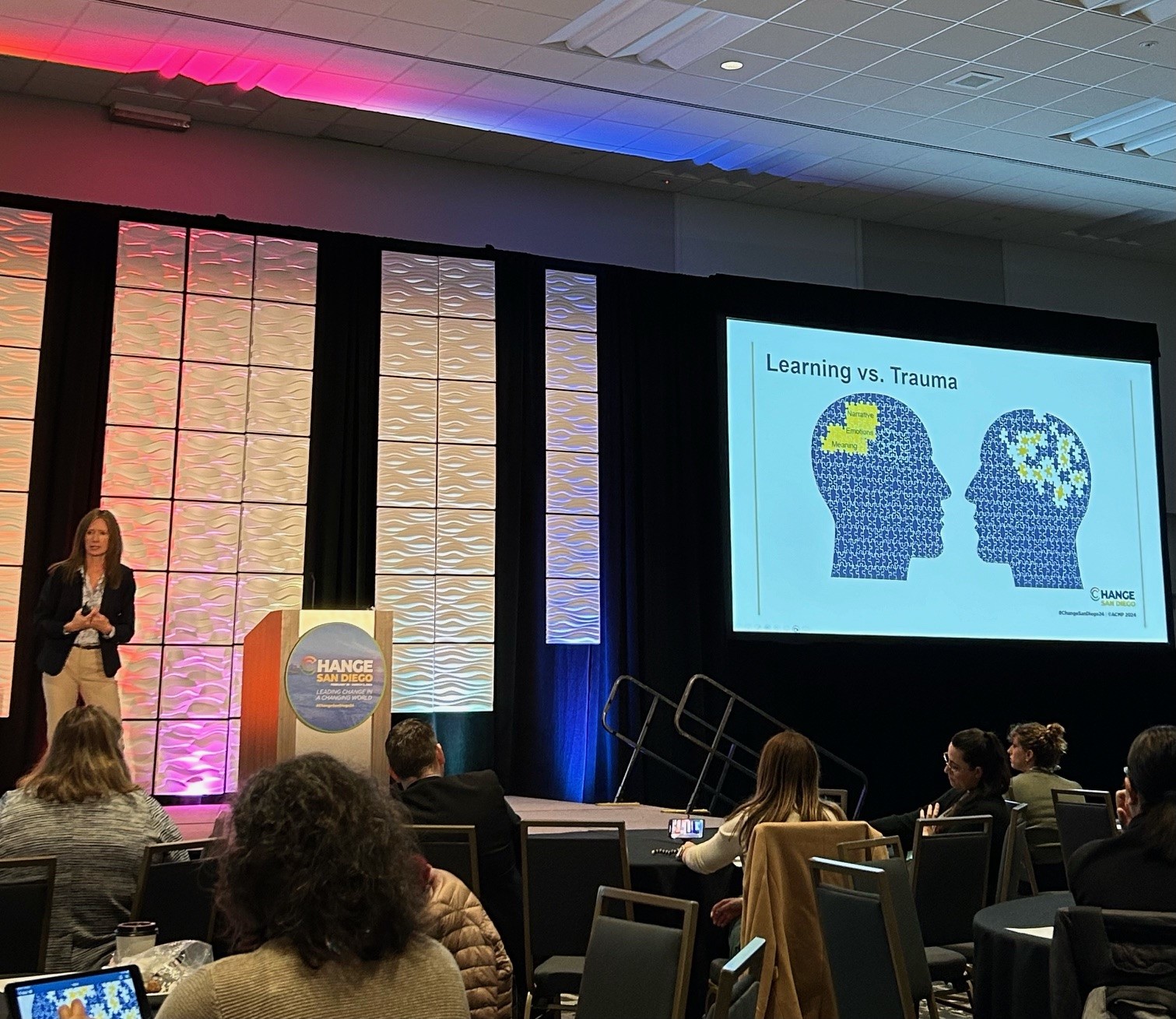Amy Leighton shares her next Learn Out Loud:
There’s no doubt the workplace has evolved in recent years, and we now know that the workplace is trauma-informed. As change practitioners, we have social and now legal obligations to design change with the psychosocial risk reduced and eliminated. What I took away from today’s session is the firm realisation that trauma is “normal”! It is physiological; it does not make you weak. The response is not a flaw; it’s designed to protect us.
Unfortunately, there are plenty of implications not only in our day-to-day lives but also in the workplace. Things such as absenteeism, task avoidance, conflicts, lack of motivation and, yes – a broad spectrum of change resistance! The disruptiveness of organisational change only exacerbates these things.
But, you ask, how can I reconcile this with my change planning?
Vera Flame gave us six simple but useable guiding principles that all change practitioners can use as a guide.
1. Create safety – safe to speak up
2. Trustworthiness & Transparency – say what you mean and be transparent when the path is not clear
3. Peer support – provide channels and material from EAP
4. Collaboration & mutuality – share power and decision making
5. Empowerment, voice and choice – work as a facilitator, not a controller. As in agile change – create a safe place to experiment
6. Cultural, historical, gender – be sensitive to historical and cultural trauma and remember to leverage DE&I
What does this look like in practicality?
– ask your stakeholders what safety looks like to them. Incorporate their feedback directly into your activities
– add a triggers section to your change impact assessment or as part of the risk assessment
– use the six guiding principles as checklist questions as part of your readiness assessment
System-based planning is where we can add the most improvement to trauma-informed change.
“You do not rise to the level of your goals; you fall to the level of your systems” – James Clear
Several years back in 2021, Jen called this out as an area that the change associations should pick up on in her post Trauma Informed Change and the Agile Change Leadership have since made the connection to the power of agile change practices in advancing trauma informed change, so this was fantastic to see it picked up at the global conference. My question to you, is how will you incorporate these principles if not already doing so?
25 August 2021: Trauma Informed Change by Dr Jen Frahm
17 April 2023: Agile Change and Trauma Informed Change


































